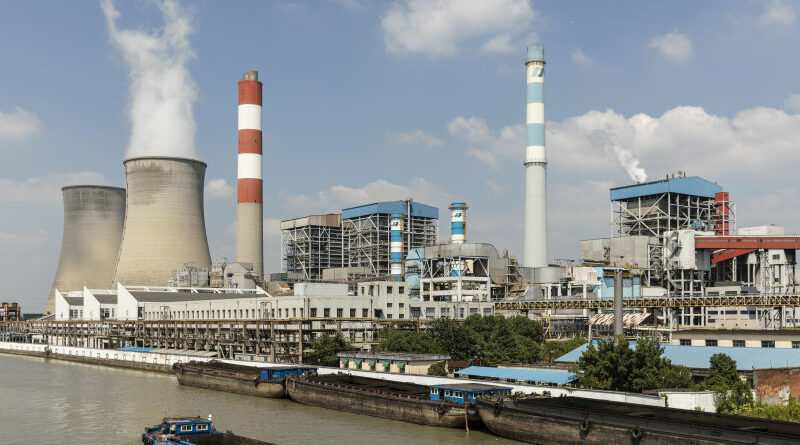Global demand for oil, gas and coal to peak this decade, IEA says
Save articles for later
Add articles to your saved list and come back to them any time.
Key points
- IEA view on oil demand outlook in contrast to OPEC
- Sees China’s role in affecting global energy market changing
- Says supply surge could lead to LNG glut from 2025
London: World fossil fuel demand is set to peak by 2030 as more electric cars hit the road and China’s economy grows more slowly and shifts towards cleaner energy, the International Energy Agency said, undercutting the rationale for any rise in investment.
The report from the IEA, which advises industrialised countries, contrasts with the view of oil producer group the Organisation of the Petroleum Exporting Countries, which sees oil demand rising long after 2030 and calls for trillions in new oil sector investment.
Wangting Power Plant in China’s Jiangsu province. The IEA sees China’s role as a key source of energy demand growth changing.Credit: Bloomberg
In its annual World Energy Outlook released on Tuesday, the IEA said peaks in oil, natural gas and coal demand were visible this decade in its scenario based on governments’ current policies – the first time this has happened.
“The transition to clean energy is happening worldwide and it’s unstoppable. It’s not a question of ‘if’, it’s just a matter of ‘how soon’ – and the sooner the better for all of us,” said IEA Executive Director Fatih Birol.
“Governments, companies and investors need to get behind clean energy transitions rather than hindering them.”
A chart in the IEA’s report showed world demand for the three fossil fuels peaking by 2030. While coal use enters a steep decline after 2030, gas and oil use remains close to peak level for the next two decades.
Still, the IEA also said as things stand, demand for fossil fuels is set to remain far too high to keep within reach the Paris Agreement goal of limiting the rise in average global temperatures to 1.5 degrees Celsius.
“This risks not only worsening climate impacts after a year of record-breaking heat, but also undermining the security of the energy system, which was built for a cooler world with less extreme weather events,” the agency said in a statement.
China’s role changes
By 2030, the IEA expects there to be almost 10 times as many electric cars on the road worldwide, and it cited policies supporting clean energy in key markets as weighing on future fossil fuel demand.
For example, the IEA now expects 50 per cent of new US car registrations will be electric in 2030, up from 12 per cent in its outlook two years ago, largely as a result of the US Inflation Reduction Act.
The IEA also sees China’s role as a key source of energy demand growth changing.
While China in the last decade accounted for almost two-thirds of the rise in global oil use, the momentum behind its economic growth is ebbing and the country is a “clean energy powerhouse,” the report said, adding more than half of global electric vehicle sales in 2022 were in China.
The IEA said the key to an orderly transition is to scale up investment in all aspects of a clean energy system, rather than in fossil fuels.
“The end of the growth era for fossil fuels does not mean an end to fossil fuel investment, but it undercuts the rationale for any increase in spending,” the IEA report said.
An OPEC report earlier this month said calls to stop investments in new oil projects were “misguided” and “could lead to energy and economic chaos”.
Reuters
Most Viewed in Environment
From our partners
Source: Read Full Article

